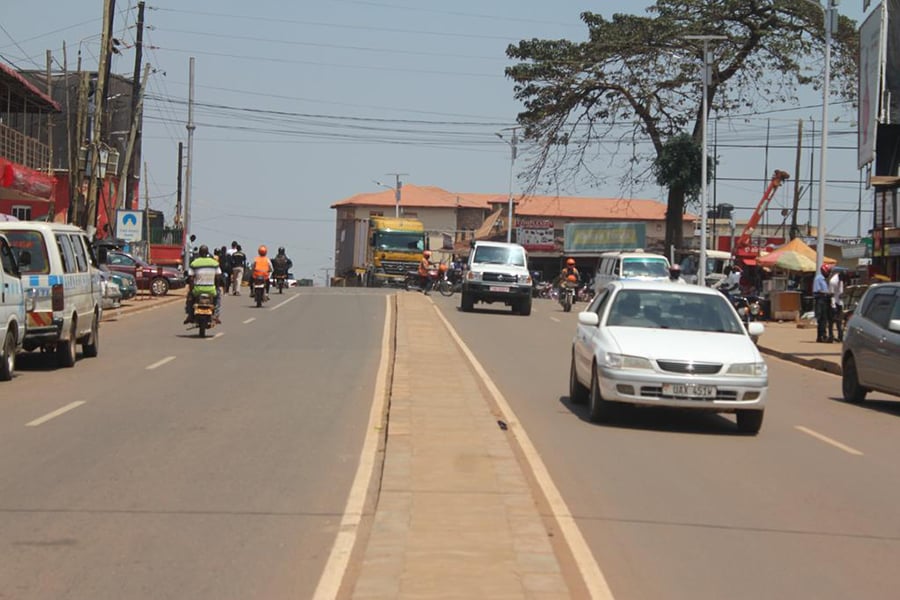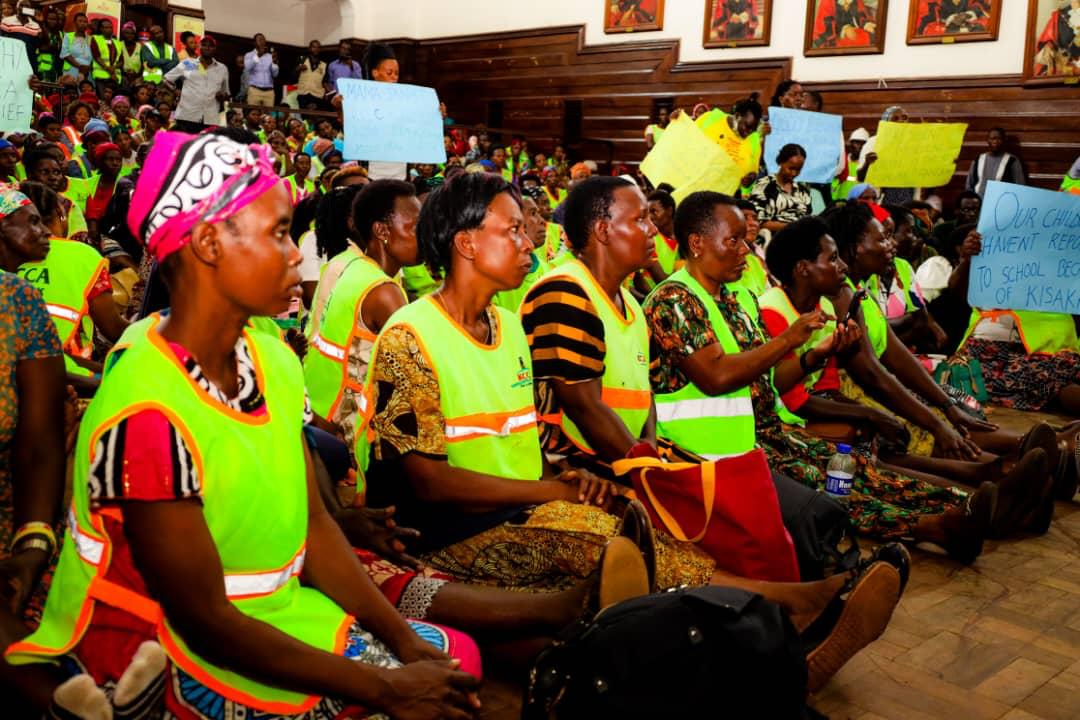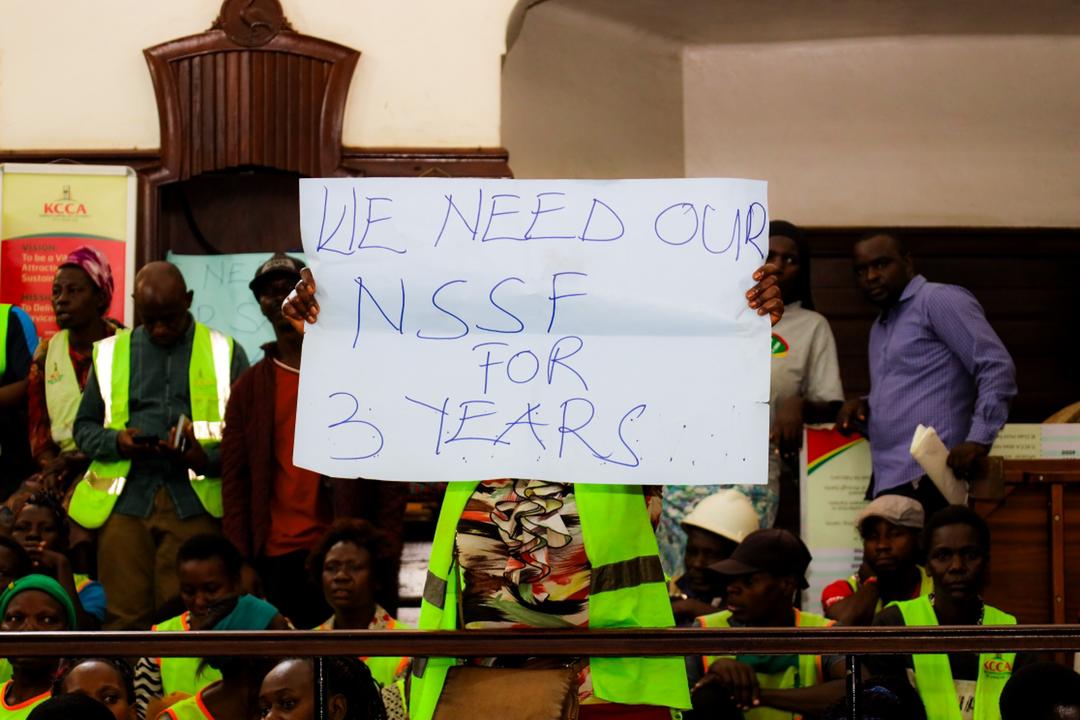'Poor implementation of traffic laws leading to many road fatalities'
One afternoon as we were heading to Ntinda, a Kampala suburb, we found four traffic officers sensitising motorists about the dangers of over speeding.
The activity which lasted for at least 10 minutes was one of the measures taken to curb and reduce on road accidents in the area.
Keep Reading
The motorists had been briefly intercepted due to over speeding, which the officers said is one of the risk factors that has led to road accidents in the black spots including along the northern bypass.
Over speeding simply means to travel faster than the prescribed speed limit and this is responsible for many road fatalities in developing countries like Uganda.
One of the traffic officers who preferred anonymity because he is not allowed to speak to the media told The Nile Post that speed is a key risk factor in road traffic injuries.
He said they are mainly using sensitisation to create awareness among the motorists regarding speeding and road safety at large.
According to the recent police report, a total of 1470 accidents were registered in September, 2021 and out of which 229 people died and 1054 got injured.
The traffic police spokesperson, Faridah Nampiima, said most of the accidents were caused by over speeding and reckless riding, especially by motorcycle riders commonly known as boda bodas.
Whereas the speed limit for passenger vehicles in built areas is 50km/hr and 80km/hr along the highways, many of these limits are not followed by drivers and this has contributed to major accidents, many of which have been fatal.
The 2020 annual police crime and road accident report indicates that there were 3663 road crashes in the country and that persons below the age of 35 years accounted for 53% of the fatalities.
The report further indicates that the majority of crashes were as a result of speeding, reckless driving and careless driving.
Sam Bambanza, the executive director of Hope for Victims of Traffic Accidents (HOVITA), said speed is the leading cause of road crashes because most of the motorists are always in a hurry to reach their final destinations.
He said by putting in place all that is required such as road signage for the speed limits, school zone signage, speed humps, clearing walkways from vendors and illegal parking will help the country a lot in curbing road crashes caused due to speeding.
He explains that some motorists don’t obey speed limits because some road signage has been vandalized while others are not visible.
Most of the drivers we have not been professionally trained.We don’t have modern driving schools and even the training facilities are not also available which is a big problem, they learn from each other,” he says.
During a crash, the higher the speed the greater the amount of mechanical energy that must be absorbed by the impact hence increasing the likelihood of serious injury.
According to the Minister of Works and Transport, Gen Edward Katumba Wamala, speed is a factor in over 50% of road crashes in Africa and it makes driving more dangerous because it reduces reaction time.
"It reduces a vehicle’s ability to brake and increases the risks to pedestrians and cyclists outside the vehicle," he said, adding that research has shown that reducing speed by 5% will cut fatalities by 30%.
According to the World Health Organisation, the faster a vehicle is moving on the road, the more likely it is to be involved in a crash.
Every 1km/h increase in speed results in a 3% increase in crashes resulting in an injury and a 4-5% increase in fatal crashes.
 Motorists in built areas are not supposed to exceed 50 KM per hr
Motorists in built areas are not supposed to exceed 50 KM per hr
The situation of speeding in Uganda is worsened by the poor road infrastructure, according to the advocates.
Cuthbert Abigaba, MP Kibaale County, said that the government should prioritise maintenance of equipment to realise the benefits of an improved road network which will greatly help in the curbing of road carnage.
Gen Wamala explained that his ministry has on several occasions requested for an increment in their road equipment maintenance budget, adding that the road fund is inadequate to meet the needs as required because it is financed under the consolidated fund.
“We have been fighting for this [equipment] for many years. The act is very clear that the road fund should grow into a second generation so that all the funds which are collected are put into the road fund account and money disbursed to districts,”
Road safety advocates have on several times called for a speed limit in urban centres with a maximum of 30 kilometres per hour speed on the roads and they believe that lives will be saved especially among pedestrians and cyclists.
According to studies, a pedestrian has less than 20% risk of dying if struck by a car travelling below 50km per hour, but almost a 60% risk of dying if hit at 80km/hr.
Dr. Olivia Kobusingye,an accident and emergency surgeon and injury epidemiologist and a senior research fellow at Makerere University School of Public Health said the guidance about reducing speed limit in urban areas has been around for some time.
She said many of the roads in Uganda are built with no space for pedestrians.
“We should not rely on enforcement, it is very expensive and we have to use many different interventions including the infrastructure. If we don’t improve the efficiency in the system, then it is going to continue," she said.
She said in some counties, infrastructure is put in place which forces the motorists to slow down but in Uganda even the police force are very thin on the ground with inadequate equipment making the situation worse.
In 2014, cabinet approved the Road Safety Policy that guides the development of programmes and activities to improve the road safety situation in the country.
Bambanza suggests that given the fact there is now technology, speed governors can be used in some vehicles and this would help to monitor the speed.
The acting Commissioner Traffic Enforcement and Operations in the Directorate of Transport and Road Safety, Richard Ecega said as the country heads towards the festive season, they have laid out plans to intensify operation against speeding and drink driving to curb road accidents.
“We are planning to have constant patrols along the roads. We are also going to monitor black spots where accidents occur, we shall have check points in those places,”he said.
Recently, the Kampala Capital City Authority (KCCA) with the leadership of the Bloomberg Philanthropies Initiative launched the “2021- 2030 Kampala Capital City Road Safety Strategy” marking the beginning of the new decade of action for road safety.
According to the the KCCA executive director Dorothy Kisaka,improving traffic control infrastructure will lead to economic benefits.
Gaps in the regulations
The Traffic and Road Safety (Speed limit) Regulation 2004 only makes a general provision for speed limits and does not provide for specific areas, particularly those with high pedestrian activity.
Uganda’s speed limit is currently 50Km/h for urban and developed areas.
The speed limit in Uganda for motor cars constructed to carry passengers, and motorcycles in rural areas is 100 Km/hr on paved roads and 80 Km/hr on gravel roads.
For the public service vehicles (PSV) and private omnibuses with seating accommodation for more than seven passengers, the driver is 80 Km/hr on paved roads and 60 Km/hr on gravel roads in the rural areas.
Section 120 of Traffic Act 2000 says every person found guilty of driving in excess of the speed limit commits an offence and is liable on conviction to a fine not less than 15 currency points (Shs300,000) and not exceeding 60 currency points which is roughly Shs 1.2 million.



















